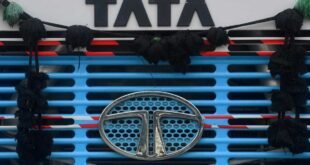Understanding the Use of Private Vehicles in Kenya’s Highway Patrols
The use of private vehicles for highway patrols in Kenya has sparked discussions, particularly after concerns were raised by Murang’a Senator Joe Nyutu. The issue centers around the ownership and procurement of these patrol vehicles, which are being used by the Kenya National Highways Authority (KeNHA) to monitor key roads. Roads and Infrastructure Cabinet Secretary Davis Chirchir provided detailed clarification on this matter, shedding light on the rationale behind the arrangement.
Why Are Private Vehicles Used?
Chirchir explained that KeNHA does not own the patrol vehicles currently in use. Instead, these vehicles are privately owned and operated by contractors who have been awarded performance-based maintenance contracts. These contracts are part of a structured approach to maintaining major highways such as Thika Road and the Nairobi Southern Bypass. The contractor’s responsibility includes regular road patrols, monitoring traffic compliance, responding to incidents, and providing assistance to motorists in distress.
This model is based on the Public Procurement and Asset Disposal Act, 2015, which ensures that all contracts are awarded through a competitive process. Contractors are selected based on their ability to meet specific performance criteria, which include maintaining road infrastructure and ensuring safety on high-traffic corridors.
Ownership and Contractual Obligations
Under these contracts, the patrol vehicles remain registered under the contractors for the duration of their obligations. This means that while the vehicles are used for public service, they are not government assets. The contractors are responsible for the operation, maintenance, and insurance of these vehicles, which aligns with the broader goal of efficiency and cost-effectiveness.
Chirchir emphasized that the use of private vehicles allows KeNHA to focus on its core responsibilities, such as oversight and inspection, while relying on experienced contractors for day-to-day operations. This partnership ensures that the roads are maintained to a high standard without the need for significant capital investment from the government.
Scope of Maintenance Contracts
The scope of these contracts goes beyond simple road maintenance. It includes:
- Regular patrols to monitor traffic rule compliance
- Rapid response to incidents and vehicle breakdowns
- Protection of road infrastructure, including streetlights and guardrails
- Immediate assistance to motorists facing emergencies
These measures contribute to improved road safety and smoother traffic flow, especially on busy routes that experience heavy congestion.
Future Plans for Patrol Vehicles
When asked whether KeNHA plans to acquire its own patrol fleet, Chirchir clarified that the authority has no such intentions. He stated that contractors are expected to provide the necessary equipment as part of their contractual obligations. This approach not only reduces the financial burden on the government but also leverages the expertise of private sector players in maintaining and operating the highways.
Chirchir also noted that while contractors handle operational patrols, KeNHA personnel continue to use official government vehicles for inspections and oversight. This dual approach ensures that both efficiency and accountability are maintained.
Conclusion
The use of private vehicles for highway patrols in Kenya is a strategic decision aimed at optimizing resources and improving road safety. By outsourcing maintenance and patrol services to qualified contractors, KeNHA can ensure that critical infrastructure remains well-maintained without the need for large-scale government investment. This model not only supports efficient operations but also promotes collaboration between the public and private sectors in achieving common goals.
 Info Malang Raya Its All About World News
Info Malang Raya Its All About World News



